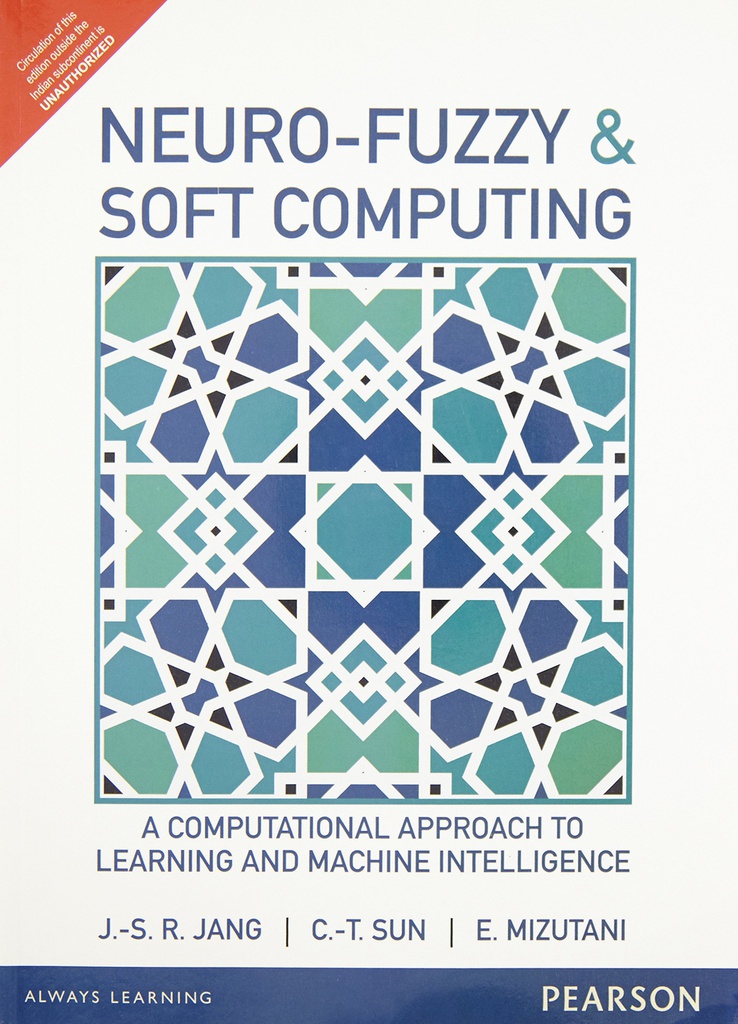Neuro-Fuzzy and Soft Computing: A Computational Approach to Learning and Machine Intelligence
Intended for use in courses on computational intelligence at either the college senior or first-year graduate level. This text provides the first comprehensive treatment of the methodologies underlying neuro-fuzzy and soft computing, an evolving branch within the scope of computational intelligence. The book places equal emphasis on theoretical aspects of covered methodologies, empirical observations and verifications of various applications in practice.
Neuro-Fuzzy and Soft Computing: A Computational Approach to Learning and Machine Intelligence
Intended for use in courses on computational intelligence at either the college senior or first-year graduate level. This text provides the first comprehensive treatment of the methodologies underlying neuro-fuzzy and soft computing, an evolving branch within the scope of computational intelligence. The book places equal emphasis on theoretical aspects of covered methodologies, empirical observations and verifications of various applications in practice.
Table of Content
- 1. Introduction to Neuro-Fuzzy and Soft Computing.
- I. FUZZY SET THEORY.
- 2. Fuzzy Sets.
- 3. Fuzzy Rules and Fuzzy Reasoning.
- 4. Fuzzy Inference Systems.
- II. REGRESSION AND OPTIMIZATION.
- 5. Least-Squares Methods for System Identification.
- 6. Derivative-Based Optimization
- 7. Derivative-Free Optimization.
- III. NEURAL NETWORKS.
- 8. Adaptive Networks.
- 9. Supervised Learning Neural Networks.
- 10. Learning from Reinforcement.
- 11. Unsupervised Learning and Other Neural Networks.
- IV. NEURO-FUZZY MODELING.
- 12. ANFIS: Adaptive-Networks-based Fuzzy Inference Systems.
- 13. Coactive Neuro-Fuzzy Modeling: Towards Generalized ANFIS.
- V. ADVANCED NEURO-FUZZY MODELING.
- 14. Classification and Regression Trees.
- 15. Data Clustering Algorithms.
- 16. Rulebase Structure Identification.
- VI. NEURO-FUZZY CONTROL.
- 17. Neuro-Fuzzy Control I.
- 18. Neuro-Fuzzy Control II.
- VII. ADVANCED APPLICATIONS.
- 19. ANFIS Applications.
- 20. Fuzzy-Filtered Neural Networks.
- 21. Fuzzy Theory and Genetic Algorithms in Game Playing.
- 22. Soft Computing for Color Recipe Prediction.
Salient Features
- The book is oriented toward methodologies that are likely to be of practical use; many step-by-step examples are included to complement explanations in the text. Pg.___
- Specially designed figures provide a visual reinforcement for as many ideas and concepts as possible. These figures were generated using MATLAB and these MATLAB files are available via FTP or WWW. Pg.___
- Includes exercises, some of which involve MATLAB programming tasks which can be expanded into suitable term projects. This will provide the student with hands-on programming experiences for practical problem-solving. Pg.___
- Each chapter includes a reference list to the research literature. This will enable students to pursue individual topics in greater depth. Pg._
| Book | |
|---|---|
| Author | Jang / Sun / Mizutani |
| Pages | 640 |
| Year | 2015 |
| ISBN | 9789332549883 |
| Publisher | Pearson |
| Language | English |
| Uncategorized | |
| Subject | Computer Science / Computing Concept |
| Edition | 1/e |
| Weight | 808 g |
| Dimensions | 20.3 x 25.4 x 4.7 cm |
| Binding | Paperback |


